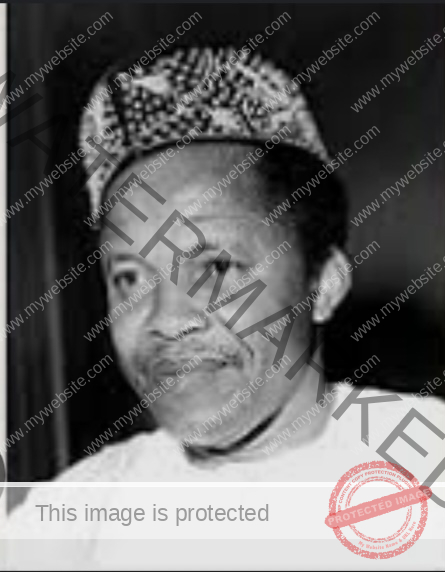Augustine Ngom Jua, became Prime Minister of West Cameroon in 1965, when John Ngu Foncha moved to the Federal level as Vice President.
By Joseph Kfusalu Bochong — The Independentist
In the annals of Ambazonian history, few names command as much respect as Augustine Ngom Jua. Born in 1915 in Njinikom, Boyo Division, Jua embodied the hopes of a people striving for dignity in the turbulent years of decolonisation. Teacher, politician, nationalist, and Prime Minister — he was the face of integrity in an era when betrayal became currency.
A Life Rooted in Service
Educated at Sasse College, Buea, and later in Nigeria, Jua returned home to teach, instilling discipline and knowledge in a new generation. His classroom discipline soon translated into political conviction. Joining the Kamerun National Democratic Party (KNDP), he rose quickly, recognised for his sharp intellect and refusal to bend to external pressures.
Prime Minister of West Cameroon
When Dr. John Ngu Foncha moved to the federal level as Vice President in 1965, Jua succeeded him as Prime Minister of West Cameroon. He became the custodian of the promises made during the 1961 plebiscite: a federation of equals between Southern Cameroons and French Cameroun.
As Prime Minister, he safeguarded West Cameroon’s legal system, educational heritage, finances, and institutions. He clashed openly with Ahidjo over creeping centralisation, insisting that the federal compact be respected.
A Champion of Intellectuals and Professionals
Jua was no enemy of knowledge. Unlike today’s French-mentored Biya regime, which views Ambazonian intellectuals as threats to be neutralised, Jua understood their value. A symbolic moment came when he opened the Annual General Meeting of the Cameroon Society of Engineers (CSE) in the 1960s, pledging his government’s support for scientific and professional advancement. For him, a prosperous West Cameroon had to be built on brains, not crumbs.
Betrayal and Removal
In 1968, Jua was unceremoniously replaced by Solomon Tandeng Muna, a man far more pliable to Ahidjo’s designs. It was the beginning of the systematic dismantling of West Cameroon’s autonomy, culminating in the 1972 fraudulent referendum that dissolved the federation. Jua, stripped of power and humiliated, lived the rest of his days in political isolation until his death in 1977.
The Legacy of Betrayal
History’s tragedy did not end with Jua’s removal. His successor, Solomon Tandeng Muna, dismantled the very federal safeguards that Jua had defended. Today, Muna’s son, Barrister Akere Muna, after decades as an international lawyer, still chases crumbs from the same system his father helped entrench. He has floated the idea of becoming Vice President of La République du Cameroun — a position that does not even exist under the constitution.
Francophones mock, “Anglofools will accept anything for crumbs.” And in Akere’s case, the irony is bitter. After his father’s betrayal, he now seeks remembrance through crumbs — even if it means selling Ambazonia’s remaining dignity for a hall named after the Muna dynasty in the National Assembly.
A Contrast in Sons of Njinikom
The story of Jua also contrasts sharply with another son of Njinikom, Francis Nkwain. Like Jua, he too was a teacher. But unlike Jua, Nkwain chose a path of opportunism and complicity. As a minister under Biya, he became instrumental in destroying the Ambazonian spirit, co-opting the English-speaking media and even shutting down Cameroon Calling, which had once given a voice to Anglophone concerns.
Nkwain entrenched his family in the system he served. His sons-in-law became pillars of the Biya regime: Victor Arrey Nkongho Mengot, now Minister Delegate at the Presidency, and Martin Mbeng, Cameroon’s ambassador in Brazil. As Minister of Mines, Nkwain himself was implicated in massive bribery scandals surrounding contracts to rebuild Yaoundé’s water reservoir.
Such practices would have been unthinkable for Augustine Ngom Jua. While Jua upheld ethics, dignity, and service to the people, Nkwain embodied the very opposite — compromise, greed, and complicity in colonial excess.
Legacy of a Patriot
Augustine Ngom Jua’s life is a lesson in contrast. Two sons of Njinikom, but two very different outlooks:
Jua, who refused to betray his people for crumbs.
Nkwain, who sold principles for patronage.
Ambazonia remembers Jua not as a fallen politician, but as a Great Son of the Soil — a statesman betrayed but never broken. His life stands as a mirror: one path leads to betrayal and crumbs, the other to integrity and immortality.
Joseph Kfusalu Bochong

